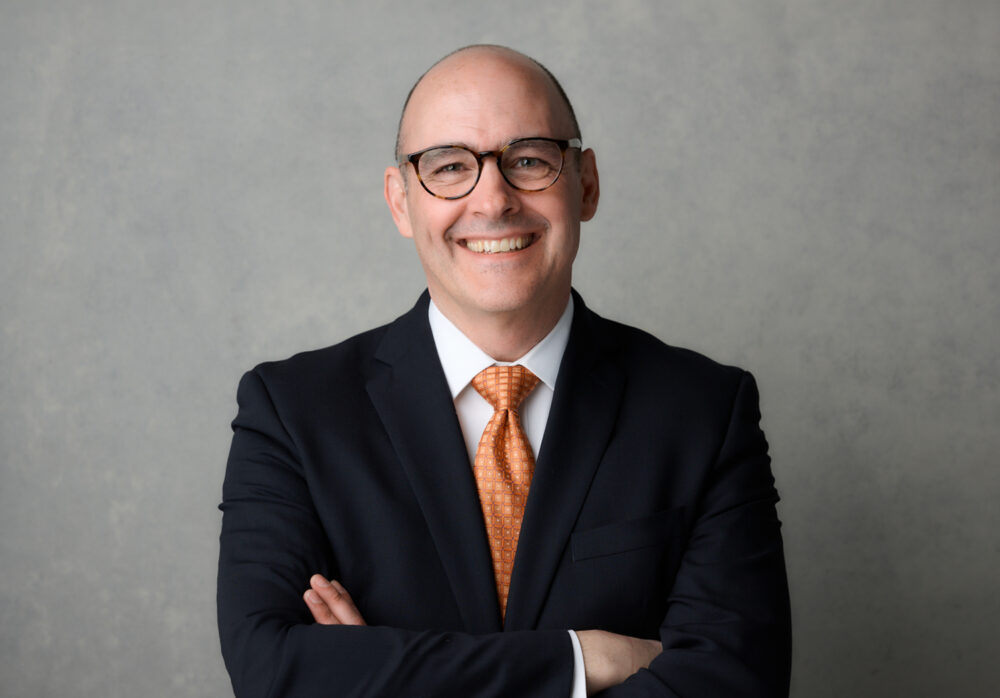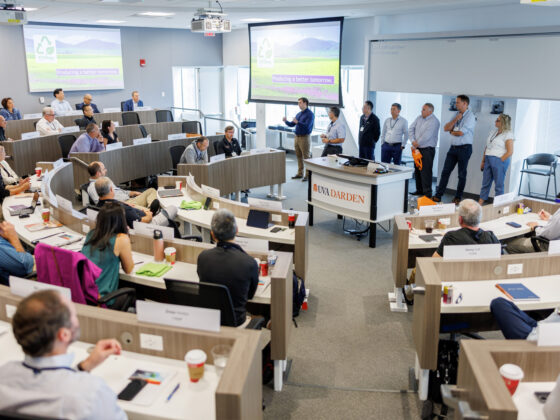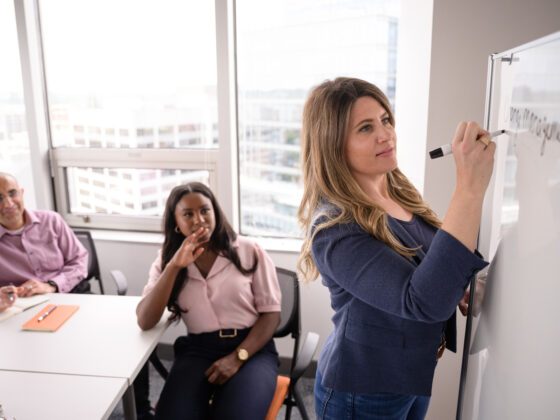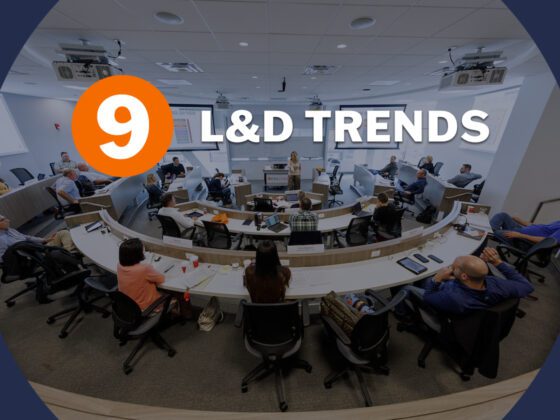Christopher Stevenson is the Principal Partner at CityGate, LLC, and former CLO of the Credit Union Executive Society (CUES). He recently spoke with Devin Bigoness, Chief Client Officer for Darden Executive Education & Lifelong Learning (EELL), about the importance of investing in talent development, the impact of CUES long-standing with Darden on the CEO Institute program, and the opportunities for the future of learning & development.
In your former role as Chief Learning Officer at the Credit Union Executive Society (CUES), much of your focus was how to align strategic execution capability building with learning offerings. What are some of the elements that you focused on to shape this connection?
In my work as Chief Learning Officer at CUES and now as advisor to associations, credit unions, and non-profits, I help organizations to create strategic alignment at all levels by leveraging effective learning and development. According to one recent Harvard study, employees at three out of five companies believe their organizations are weak on execution. With so much lip service paid to the discipline, why aren’t more companies executing their strategies well?
I think one of the key barriers to execution is ineffective L&D. We often assume long tenure means that an employee knows what he or she is supposed to do to contribute to execution. That’s a mistake.
As organizations set new strategies to compete in an increasingly complex and rapidly changing business environment, they need to make sure that they have the right capabilities on their teams. This is often interpreted as “Do we need to hire or acquire?” Bringing on new talent is only half a solution, though. The organization needs to invest in talent development for existing employees and ensure the learning opportunities are laser-focused on the skills and abilities required to achieve objectives. Without it, execution is bound to fail. People need to know how their roles support objectives and be developed to ensure they can play their parts.
In 2024, Learning and Development seems to be a “hot topic” given how much volatility and disruption organizations and individuals are experiencing. What advice would you have for other CLOs to help them be successful in the current environment?
The trap many CLOs and other L&D professionals fall into is the tyranny of the urgent, especially in smaller organizations. We spend so much time trying to address issues like training our staff on compliance issues, onboarding new staff (especially in high-turnover areas like call centers), and product training that we forget to consider our talent pipeline. Who are our future people leaders and what do we need to do to adequately develop them for their next roles? And those roles may not even exist yet. In a volatile, uncertain, complex, and ambiguous marketplace, CLOs need to think about the roles required to execute the strategy and put in place the learning plans needed to prepare future leaders to take them on. Every employee should have an individual development plan that prepares them for their current role and what’s next.
In a volatile, uncertain, complex, and ambiguous marketplace, CLOs need to think about the roles required to execute the strategy and put in place the learning plans needed to prepare future leaders to take them on.
Darden and CUES have had a long-standing partnership with the CEO Institute program, developing senior leaders in the Credit Union industry. What were some of the key characteristics of that partnership when you were involved with this collaboration?
I’ve worked with Darden on executive education programs for close to 18 years. During that time, the staff and faculty worked with me and my organization to create memorable and life-changing learning experiences for our students. The Darden team proactively engaged with stakeholders to learn more about the industry and adapted the classroom and experiential learning to meet student needs. Every lead faculty member I’ve worked with dove deep into the credit union system to understand its strategic and leadership challenges and opportunities more fully. They used that knowledge to craft a program that helped students reflect on their own leadership abilities and return to their organizations better prepared to lead them.
At Darden, we emphasize transformational learning, experiential engagement with the learner and programs that help leaders build key capabilities to be agile; were there examples of where you experienced this first-hand?
Experiential learning has always been a cornerstone of CUES’ CEO Institute at Darden. I am not affiliated with CUES any longer and am not a spokesperson for the organization, but while there, I had the privilege of watching hundreds of senior executives on ropes courses stretch their way of thinking, improve their problem-solving abilities, and realize the importance of relying on other team members to provide diverse perspectives to accomplish tasks. The experiential component of the program reinforced classroom learning and allowed students to see what the theory looked like in action. And I believe the skills students hone on the ropes course enables them to adapt and succeed in our marketplace. Many CUES’ participants have gone on to become CEOS and lead their organizations to growth and community impact.
As a senior learning and development professional who has a wide range of experiences over the years, what are you excited about in the field of L&D, Talent Development as we progress in 2024?
Now, more than any other time in my career, I’m seeing executives weaving learning and development into their strategic discussions. They are thinking through the roles they’ll need to have in place to succeed in executing their strategies. More and more organizations are ensuring employees have a sightline to the future roles and development opportunities to be qualified to fill them. We have a long way to go before L&D is as much a part of strategic discussions as operations or finance, but we are making progress and I’m excited to see how far we can go in 2024.
Christopher Stevenson is Principal Partner of CityGate, LLC, which provides leadership development, coaching, and consulting on learning and development to credit unions, associations, and other not-for-profit organizations. A certified coach, Stevenson has over 20 years of experience in leadership development and adult learning, and helps leaders accurately assess their strengths and development needs and create specific but realistic action plans to meet their career goals and aspirations.
Prior to founding CityGate, Stevenson served as Chief Learning Officer of CUES, developing industry-leading education for credit union board members, executives, and future leaders. He was also responsible for leading research into the trends that shape the credit union industry.




